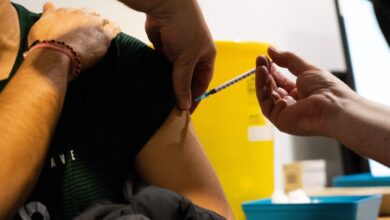NHS racism shame: One in three Black and minority ethnic staff face discrimination or bullying

A third of Black and ethnic minority health staff have suffered racism or bullying as the NHS fails to address “systemic” levels of discrimination, The Independent can reveal.
Levels of bullying and harassment of minority workers have not improved in the past five years with almost 30 per cent saying they have been targeted in the past year, compared to 20 per cent of white staff.
Despite being one-quarter of the workforce, minority ethnic staff make up just 10 per cent of the most senior positions, the NHS’s flagship report is set to reveal.
One nurse told The Independent she was forced to leave her job following a campaign of bullying, while another, who has left for the private sector, said her mental health was hugely impacted by the discrimination she experienced.
Equality for Black Nurses, a membership organisation founded by Neomi Bennett in 2020, has launched 200 cases of alleged racism against a number of NHS trusts since it was set up.
“Racism is driving nurses out of the NHS,” Ms Bennett, told The Independent, warning that this issue had reached “pandemic levels”.
“I see day in and day out the effects of racial bullying and how this impacts nurses across the UK,” Ms Bennett continued. “The bullying of Black nurses has reached pandemic levels and goes unchallenged.
“However, there is a clear difference in experiences when comparing Black nurses’ difficulties to white nurses.”
She added that racism within the NHS was “systemic” and “deeply embedded” and said structures within the organisation allowed patterns of behaviour to be repeated.
Have you been impacted by this story? email rebecca.thomas@independent.co.uk and nadine.white@independent.co.uk.
As the NHS prepares to publish its annual Workforce Race Equality Standard (WRES) report, The Independent can reveal that the survey will show that the number of minority staff in the NHS has increased by 100,000 since 2018 – largely driven by increased international and overseas recruitment.
Despite this, it is struggling to make progress on equity with just two-fifths of staff reporting that their hospital provides equal opportunities and just 10 per cent of minority staff in top hospital roles.
Internal NHS survey figures show that race was the most commonly reported type of discrimination across all staff, with female workers of colour experiencing the highest level of discrimination in 2022. Other causes of discrimination, however, have reduced since 2016.
In that year, the NHS launched its first annual workforce race equality report, however, sources have said a survey last year showed little progress on key measures.
In April 2022, the government pledged to “close” the gap in pay in the NHS between different ethnic groups in a response to its commission on race and ethnic disparities.
But the latest data shows that white staff are still significantly more likely to be hired than their minority co-workers across more than two-thirds of NHS trusts.
Meanwhile, Black and ethnic minority staff are far more likely to enter a disciplinary process, with half of all trusts having unequal rates of referral by ethnicity.
The Independent has spoken to nurses across the country, represented by Equality for Black Nurses, who allege racism against their NHS employers and professional regulators.
One intensive care nurse said she was left broken after being suspended from work following a campaign of bullying.





